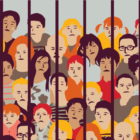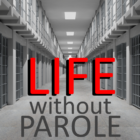
Opinion: Returning to pre-pandemic activity raises Asian American fears of anti-Asian gun violence
|
Going on outdoor walks without a mask. Hopping on a Washington, D.C. Metro train without holding my breath. Meeting friends at restaurants and bars … Resuming those and other parts of my pre-pandemic life has been fun. It’s also been scary — and not for reasons related to COVID-19. I’m Asian American, which can make being in public dangerous.
The FBI reported that, in 2020, the number of hate crimes targeting Asian people rose from 158 to 274, a more than 70% increase.








